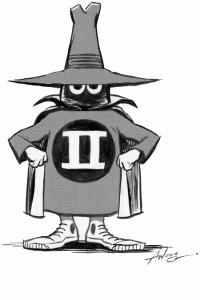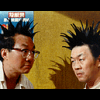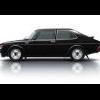Search the Community
Showing results for tags 'Leaders'.
-
"In 2007, Raymond Lim said public transport fares have to go up because of the rising oil prices. In 2008, the same Raymond Lim said public transport fares would not go down despite the falling prices of oil because there is no correlation between the two". "Based on figures provided by ComfortDelGro , Singapore 's biggest taxi operator, cabbies are pocketing about $11 more a day, earning about $318." - Mr. Raymond Lim "Only 5% are unemployed. We still have 95% who are employed." - Yeo Cheow Tong "People support CPF cuts because there are no protest outside parliament." - PM Lee "GST hike is to help the poor." - PM Lee AND last but not least, here's what MM Lee said in April 2007:- ........you have to pay the market rate or the man will up stakes and join Morgan Stanley, Lehman Brothers or Goldman Sachs and you would have an incompetent man and you would lost money by the BILLIONS.....!!!!!! WHAT do you guys think? ANything to add?
-
Any bros saw the TV footage of him talking about this? Could not really hear him and you have to raise the TV volume. And his manner was very stiff... But for an almost 90 old man really From CNA: http://www.channelnewsasia.com/stories/sin...1203376/1/.html S'pore chooses new leaders very carefully: Lee Kuan Yew By Michiyo Ishida | Posted: 24 May 2012 2219 hrs
-
http://www.channelnewsasia.com/news/singapore/ho-ching-to-be-presented/1222038.html#.U7DfYIVk7NE.twitter "The annual award recognises individuals who embody the 'Servant Leader' - economic success and professional excellence accompanied by moral leadership and service to society," Asia House said in a press statement. "Ms Ho Ching was selected to receive this year's award because of her impressive business credentials and her significant efforts to inspire a commitment in others to improving society."
-
The policy changes that were announced by PM Lee during the National Day Rally Speech hinted at a poignant situation: the government hears the discontent that has been vocalised by the populace, seeks a way to enhance the current system yet, at the same time, it is held back by grave concerns and worries over destabilising a system that seems to have been working well for the country. Housing, education and health-care are the three pillars of any nation. The policies that govern them are therefore always scrutinised the closest by both policy-maker and citizen alike. It is little wonder that changes to these policies are usually small and carefully calibrated steps instead of sweeping ones. Independence in 1965 made Singapore an unexpected aspirant of stardom. However, perhaps only the founding fathers of modern-day Singapore, Mr Lee Kuan Yew and his capable team-mates, each an intellectual in his own right, sensed the great heights that the nation could one day achieve. Fast-forwarding to 2013, Singapore has achieved stardom in more ways than one. Where we were once an unknown island, today our name is splashed across pages on both online and traditional print media. We have come a long way and it was a bitter-sweet journey fraught with great pain, sacrifices and courage. There has been much talk about our nation being on the cusp of adulthood and that the angst that we are collectively experiencing arises from the transition from adolescence. And angst indeed it is. Take for example the shifts in education policies. They have not placated the anxious parents of primary-school students. In fact, these adjustments have made them even more worried. On the surface the negative responses that parents have had seem counter-intuitive. Were these policy shifts not meant to reduce the frustration that they had been feeling? In the system of traditional chinese medicine, the crux of treatment is always at the root of the ailment. Treating the symptoms is tantamount to kicking the can down the road. While the symptoms can vanish overnight because we swallow a paracetamol pill, they are bound to return as long as the root issue is unsolved. As a nation, we have always prided ourselves as a meritocratic society that promises the opportunity of growth as long as one tries hard enough. The message that our leaders have expounded for the last half a century is that by working hard, we will one day attain the pinnacle of success; that sloth is evil and should be eradicated. These are the bases of success in a modern capitalistic world. And these words ring very true. Sloth and laziness are guaranteed to lead to failure. Without effort and industriousness, it is unthinkable how one can ever achieve even the slightest form of material success, save through being born with a silver spoon in his mouth (and even so, the rich but lazy ones will eventually squander their family wealth away). Unfortunately a pendulum swings both ways. When certain human tendencies swing too far in the other direction, the outcome is rarely positive. Our preoccupation with material success has led us to develop what we, as a people, term "kiasu-ism" or the fear to lose. This fear is so overwhelming that we lose any semblance of logic or common-sense the moment it strikes. Our PM beseeched the people to "celebrate achievers, not envy them". His call is sincere and sound as were his calls to the people to be gracious and considerate. However, it is impossible for a nation to become gracious overnight. The roots of graciousness must first exist for it to materialise. The people of a nation cannot become gracious just because the leaders call for them to be so. A gracious society is rooted in compassion and empathy. These two elements are crucial for a nation to become a gracious society. A country is composed of communities. A community consists of many families. A family comprises multiple individuals. To change a country, we must change the communities. To change a community, we need to change the families. To change a family, we have to change the individual. When individuals become compassionate and empathic, families will become so. When families become compassionate and empathic, communities will become so. When communities become compassionate and empathic, the nation will become so. When the nation becomes compassionate and empathic, it will become a gracious society and her people will celebrate achievers instead of envying them. The key therefore is to understand how the individual can become more compassionate and empathic. Policies today are nearly always set with the masses in mind. It makes conventional sense because policy-makers are catering to large groups of people at the levels of community and family. However this restricts the resolution of the policies. They are not tailored to specifically improve the condition of the individual. How do we inculcate compassion and empathy in the individual? Our exploration leads us to ask the counter-question: How do we not inculcate compassion and empathy in the individual? When an individual is drilled with the belief that stiff competition is good, that he must triumph over all others and that he must be the best, it is inevitable that he progessively becomes self-centred. The self-centredness reduces his awareness of compassion and empathy in himself. Over the last few decades, our focus on being the best has led us to become top in many areas. Our competitive streak has led us to become champions in math olympiads. Our pursuit of material success has led us to become a society that needs to be told that graciousness is important, that compassion is fundamental. Does that mean that what we have been doing as a nation was wrong? No, we needed all of that to give our people a roof over their heads and food on their tables. The difference today is that we have reached a level of economic maturity where we now need to look beyond the fundamental needs when policies are being made, and make fundamental changes in policy-conceptualisation so that these policies can help the people gain awareness of their own individual human condition and realise that they themselves need to own the changes that are essential to us progressing further as a developed society. Fundamental changes such as a shift to focus on spiritual growth - the maturing of an individual in his spiritual awareness - will go a long way in helping each and every young child understand that he is a drop of water in a larger ocean, a grain of sand in a larger desert; that his thoughts and actions cascade in the universe of thoughts and actions and make a huge difference in how other people experience their own lives. Through this, empathy can be developed and compassion arises. As compassion and empathy grow stronger in the individuals of a nation, the issues that we are facing now - xenophobia, frustration, kiasu-ism - will naturally fade and diminish, because they are all rooted in self-centredness.
-
7th Place: Francois Hollande, President of France French President Hollande delivers a speech during a visit to an elementary school in Dieudonne Approximate salary: SGD $291,680 per annum Needs to manage: Approx. 65 million people, 675,000+ square kilometers, at least 400 kinds of cheese In Singapore, his pay amounts to: Inability to buy a car with his entire month
-
Ignoring their performance as leaders, but purely for skill / charisma as a public speaker, who do you think are good and inspiring speakers? Obama? ex-UK PM (before Brown)? or LHL / LKY from the land of world-class-everything? Seriously, who else?
-
This one from yahoo huh, not me http://sg.finance.yahoo.com/news/Top-10-Hi...928230.html?x=0 Brent Radcliffe, On Wednesday 19 October 2011, 0:28 SGT You may think that those wishing to suffer extreme public scrutiny while making decisions that affect millions of citizens would demand the big bucks, but when it comes to pay, many world leaders look like chumps compared to the CEOs of many corporations. While most salaries pale in comparison to the likes of Warren Buffett's, some are downright huge when compared to the people a leader may govern. Top 10 Political Leader's Salary by Country (2010): 1. Lee Hsien Loong (Singapore): $2,183,516 2. Donald Tsang (Hong Kong): $513,245 3. Raila Odinga (Kenya): $427,886 4. Barack Obama (United States): $400,000 5. Nicolas Sarkozy (France): $302,435 6. Stephen Harper (Canada): $296,400 7. Mary McAleese (Ireland): $287,900 8. Julia Gillard (Australia): $286,752 9. Angela Merkel (Germany): $283,608 10. Yoshihiko Noda (Japan): $273,676 Salary Compared to GDP What makes a world leader's pay reasonable or outlandish? One way of making this call is by looking at pay compared to a country's GDP per person at purchasing power parity (PPP). Using PPP helps make a better estimate of just how far money goes in a country, since the cost of living will vary from country to country. Comparing each leader's salary (in international dollars) to the IMF's 2010 PPP figures shows how much more a world leader makes compared to an average joe at home. 1. Raila Odinga (Kenya): 255.30 2. Lee Hsien Loong (Singapore): 38.51 3. Donald Tsang (Hong Kong): 11.17 4. Nicolas Sarkozy (France): 8.92 5. Barack Obama (United States): 8.54 6. Yoshihiko Noda (Japan): 8.08 7. Angela Merkel (Germany): 7.86 8. Stephen Harper (Canada): 7.57 9. Mary McAleese (Ireland): 7.29 10. Julia Gillard (Australia): 7.21 What do these numbers mean? Looking at GDP per person doesn't show how a country stacks up in terms of income inequality, a statistic that can measured using the Gini coefficient. Ranking the leaders by their country's income inequality can really show how far out of touch a leader is with those governed. The Gini coefficient changes things up (zero means perfect equality and one perfect inequality). 1. Donald Tsang (Hong Kong): 0.434 2. Raila Odinga (Kenya): 0.425 3. Lee Hsien Loong (Singapore): 0.425 4. Barack Obama (United States): 0.408 5. Julia Gillard (Australia): 0.352 6. Mary McAleese (Ireland): 0.343 7. Nicolas Sarkozy (France): 0.327 8. Stephen Harper (Canada): 0.326 9. Angela Merkel (Germany): 0.283 10. Yoshihiko Noda (Japan): 0.249 Base Salary Vs. Perks When it comes to what a leader is really paid, a distinction must be made between base salary and additional stipends. Leaders may receive free residences or residential stipends, free healthcare, free travel and other perks. They may be permitted expenses that most people would have to pay for out of pocket. Those figures are more difficult to come by, especially in the murky world of political influence. Less scrupulous world leaders may pad their own bank accounts with their own country's money through corruption. "Transparency International's Corruption Perceptions Index (CPI)," first released in 1995, tracks corruption trends in 178 countries. It assigns a rank of 10 to countries deemed clean, and zero to countries considered highly corrupt. Ranking the leaders by how corrupt their countries are, the ranking shifts to the following: 1. Raila Odinga (Kenya): 2.1 2. Nicolas Sarkozy (France): 6.8 3. Barack Obama (United States): 7.1 4. Yoshihiko Noda (Japan): 7.8 5. Angela Merkel (Germany): 7.9 6. Mary McAleese (Ireland): 8 7. Donald Tsang (Hong Kong): 8.4 8. Julia Gillard (Australia): 8.7 9. Stephen Harper (Canada): 8.9 10. Lee Hsien Loong (Singapore): 9.3 Of these countries, only three would not be considered "full democracies" by the "Economist Intelligence Unit's Democracy Index:" Kenya, Hong Kong and Singapore. The Bottom Line What do all of these numbers tell us? Leaders of advanced economies earn very similar salaries to each other, and those countries tend to be less corrupt and more democratic. While Lee Hsien Loong may earn 38 times the average resident of Singapore, his country is considered a good place to do business even if it is not fully democratic. On the other end of the spectrum, Raila Odinga earns an incredible amount more than the people he governs, and presides over a country that Transparency International would consider one of the most corrupt around (ranked 154 out of 178 countries).
-
A couple of days ago a minister came to visit our condo door to door to campaign for the elections. At first it was not the minister himself. Just his staff or his grassroots leaders who come in advance to "prepare" the residents on how to welcome the VIP. My daughter was at the door and told them that my wife was in the shower and cannot meet him. So they left a leaflet and left. But after 5 minutes they came back again and asked my daughter again. My daughter said told them my wife was still in the shower. The fact is my wife was bathing my baby and it takes longer than usual. Hearing that the grassroots leader said sarcastically "Waaah, are you sure bathing must take so long ?"
-
From Channel News Asia website: http://www.channelnewsasia.com/stories/sin...1120849/1/.html "A-team" leaders needed to ensure Singapore's future SINGAPORE: Prime Minister Lee Hsien Loong says Singapore must develop the strongest possible team, with depth and resilience, to ensure its long term future. An "A team" like this would have to include both competent ministers and younger ones, so as to enable Singapore to compete in the international league of nations. Mr Lee was speaking to university students at the Kent Ridge Ministerial Forum entitled "Leadership Renewal: The 4th Generation and Beyond" at the University Cultural Centre on Tuesday. Mr Lee said that assembling an outstanding team is not an easy task because in every election, his ruling People's Action Party (PAP) finds only three new MPs, on average, who can become Ministers. He is confident he has put together an "A team", but he said he cannot assemble a second team and questioned how the opposition can find it easier to do so. Mr Lee said a two-party system is not workable in Singapore because there is simply not enough talent to form two "A teams". He emphasised that Singapore, more than any other country, needs capable leadership to tackle difficult challenges and maximise opportunities for the nation. With a mediocre government, Singapore will fail, warned Mr Lee. He said a two-party system will also throw up other problems, such as a division in society based on class or racial lines and groups pushing different policies. And because there is a lack of talent, Mr Lee said he also disagrees with Senior Minister Goh Chok Tong's recent opinion that future ministers may end up serving only two terms. Mr Lee said that is not possible because of the lack of numbers. Mr Lee said Singapore has achieved this much today because of the various policies and systems the PAP government has put in place. These include introducing policies to give all citizens a stake in the country's success and adapting a political system that will not be divisive for Singapore, such as creating the elected Presidency. Today, Mr Lee said, Singapore's success is widely recognized. He said the PAP accepts that some people will want to join the opposition and propound alternative policies. But he added that as long as the government is competent and doing a good job for Singaporeans, Mr Lee hopes that the citizens will share the same cause with the PAP team to ensure that things remain on the right path. Mr Lee called on Singaporeans to help this leadership renewal succeed, which he said will help the government develop good policies that will continue to bring prosperity and progress to Singapore. "They (PAP team) need the voters' full support, not just to get elected but to deliver results for you....This is the way to safeguard our future - not to weaken the A team in the hope of buying insurance but to strengthen the A team to give it the best chance of succeeding," said Mr Lee. "Over next 40 years, you will be building your careers and families. For you to do this in a secure, stable and prosperous Singa
-
Within weeks, smart scholars and CEOs make some of the most intolerable remarks as follows; 1) We cannot prevent floods 2) Crowded MRT during peak hours, sinkies ask for it 3) Obese people should not hold important appointments What the pea size country coming to? Pushing all faults back to sinkies?
- 94 replies
-
- Insensitive
- Leaders
-
(and 1 more)
Tagged with:
-
Reuters - Thursday, March 25SendIM StoryPrint.SINGAPORE, March 24 - The New York Times Co <NYT.N> apologised to Singapore Prime Minister Lee Hsien Loong and former prime minister Lee Kuan Yew on Wednesday and paid S$160,000 in damages for an article about Asian political dynasties. An apology in the opinion section of the New York Times' website said that any inference that Lee Hsien Loong "did not achieve his position through merit", was unintended. The article, entitled "All in the Family", was published on Feb. 15 in the International Herald Tribune , the global edition of The New York Times. Lee Hsien Loong is the son of independent Singapore's first leader, Lee Kuan Yew. The New York Times also apologised to Goh Chok Tong, who succeeded the older Lee as prime minister. Davinder Singh, the lawyer acting for the leaders, told Reuters that the IHT's publisher, editor of global editions, and the article's author, Philip Bowring, also agreed to pay damages of S$60,000 to Lee Hsien Loong, and S$50,000 each to Goh Chok Tong and Lee Kuan Yew, as well as pay their legal costs. Singh said the article was "libellous" and the Singapore leaders had demanded an apology, damages and costs. He said it was in breach of an undertaking made by both the publisher of the IHT and Bowring in 1994 that they would not make further similar defamatory allegations to those made in an article by Bowring in the IHT in that year called "The Claims about Asian Values Don't Usually Bear Scrutiny", for which the IHT and Bowring also paid damages and costs to the three leaders. A spokesman for The New York Times Co declined to comment beyond the apology, while Bowring did not respond to a Reuters query for comment. Singapore's leaders have in the past sued and won damages, or out-of-court settlements, from opposition politicians and foreign media including the International Herald Tribune, Wall Street Journal, Bloomberg and The Economist. Singapore, considered to have the lowest political risk among Asian nations by many risk consultancies, is a hub for manufacturers, banks and expatriates, who value its stability. The ruling People's Action Party has governed for 50 years. Singapore was ranked 133rd among 175 countries in the World Press Freedom Index 2009 by Reporters Without Borders. (Reporting by Neil Chatterjee in Singapore and Tiffany Wu in New York; Editing by Nick Macfie and Raju Gopalakrishnan)
-
they carry balls of the big shot;reserve parking lots for the big shot car, wipe the chair and tables for the big shot before he eat. i feel they are like "DOGS". carry balls also dun need to do all that. any more examples of what they should do?
-
Got this email from a friend: They are really classic, especially the last quote. " For a person who runs a million-dollar charitable organization, $600,000 is peanuts as it has a few hundred million in reserves." - Mrs Goh Chok Tong "If you don't include your women graduates in your breeding pool and leave them on the shelf, you would end up a more stupid society... So what happens? There will be less bright people to support dumb people in the next generation. That's a problem." - MM Lee in 1983 "Save on one hairdo and use the money for breast screening." Lim Hng Kiang "Only 5% are unemployed. We still have 95% who are employed." - Yeo Cheow Tong "Retrenchment is good for Singapore. If there is no retrenchments, then I worry." - SM Goh "We must encourage those who earn less than $200 per month and cannot afford to nurture and educate many children never to have more than two... We will regret the time lost if we do not now take the first tentative steps towards correcting a trend which can leave our society with a large number of the physically, intellectually and culturally anemic." - MM Lee in 1967 "Contrary to public perception, the White Horse classification is not to ensure that sons of influential men gets preferential treatment. Instead it is to ensure that they do not get preferential treatment."- Cedric Foo "I give you an example: you put out a fun podcast, you talk about 'bak chor mee'; I will say "mee siam mai hum", then we compete." PM Lee Hsien Loong "I don't think that there should be a cap on the number of directorship that a person can hold." - PAP MP John Chen who holds 8 directorships . "It's not for the money because some of the companies pay me as little as $10,000 a year." - PAP MP Wang Kai Yuen who holds 11 directorships. "We started off with (the name) and after looking at everything, the name that really tugged at the heartstrings was in front of us. The name itself is not new, but what has been used informally so far has endeared itself to all parties." - Mah Bow Tan on the $400,000 exercise to rename Marina Bay as Marina Bay. "Having enjoyed football as a national sport for decades, we in Singapore have set ourselves the target of reaching the final rounds of World Cup in 2010." - Ho Peng Kee "I would want to form an alternative policies group in Parliament, comprising 20 PAP MPs. These 20 PAP MPs will be free to vote in accordance with what they think of a particular policy. In other words, the whip for them will be lifted. This is not playing politics, this is something which I think is worthwhile doing." - SM Goh "If you want to dance on a bar top, some of us will fall off the bar Top. Some people will die as a result of liberalizing bar top dancing
-
Queen Elizabeth, Bill Clinton and Old Fogey were gathered at the telephone booth in hell with The Devil by their side. Elizabeth asked Lucifer if she can possibly call back England and enquire about the well being of the British subjects and was granted permission. She made a 1min call and was charged $5mil. Elizabeth promptly issued a Barclays cheque in Lucifer's name. Bill made a call back to Monica for 2mins and was charged $10mil. Old Fogey not wanting to be outdone by the 2 whities decided to call back and check on MS' escape case. He spent a whopping 1 hour on the phone with dragon prince and turned to Lucifer proudly with chequebook ready. Old Fogey was flabbergasted when Lucifer charged him only $1!!! -------> Old Fogey: Why is it so cheap? I can afford to pay ya know???!!! Lucifer: Thats because you made a local call while the others made long distance trunk calls
-
I happened to found this link when I was doing my tutorial research on suicide in Singapore. We'll talk about that another day. This one is really funny on some of the replies. I will paste the article and you can look at the reply via the link below. http://www.p65.sg/2008/04/07/perfect-leade...rture/#comments Perfect Leaders - Nature or Nurture? April 7th, 2008 What exactly are the desired qualities of a perfect or ideal leader? Are good leaders borned or are they groomed to possess the necessary traits to lead effectively? What is more important - intelligent quotient (IQ) or emotional quotient (EQ)? Are grades really that critical in identifying potential leaders? PM Lee in today












